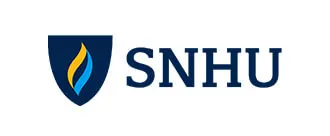Southern New Hampshire University's Master of Business Administration in Six Sigma Quality program offers you a solid foundation in advanced business concepts and quality management techniques while helping you prepare for the Six Sigma Green Belt and Six Sigma Black Belt certification exams. Discover more about the Master of Business Administration in Six Sigma Quality program here.
<h2 id="section---FrequentlyAskedQuestions">Frequently Asked Questions</h2>
<h3 id="section---WhatKindOfProgramIsIt">What Kind of Program Is It?</h3>
<p>The online Master of Business Administration in Six Sigma Quality program at Southern New Hampshire University gives you the opportunity to study and develop skills in applied managerial statistics, statistical quality control, and quality management and improvement techniques. You can learn about the define-measure-analyze-improve-control (DMAIC) method of quality management as you work with Lean Management tools and Minitab and SPSS statistical design and analysis software. Core business coursework includes managerial accounting, financial management, marketing strategies, production and operations management, strategic management, and the use of information technology in business.
</p>
<h3 id="section---WhatAreThePrerequisites">What Are the Prerequisites?</h3>
<p>As a potential applicant to the Master of Business Administration in Six Sigma Quality program, you should be interested in learning how to improve an organization's production, operations, and customer service through the widely used Six Sigma approach to quality management. You may also have a professional or educational background in business. All applicants to Southern New Hampshire University programs must have earned a bachelor's degree or equivalent.
</p>
<h3 id="section---WhatAreTheCourseRequirements">What Are the Course Requirements?</h3>
<p>Southern New Hampshire University's Master of Business Administration in Six Sigma Quality is a 39-credit program. It includes ten core business courses and three Six Sigma courses. Some students may be required to take additional foundation courses; students with business-related undergraduate degrees are typically exempt from most foundation courses.
</p>
<p><u>Six Sigma Courses</u>*
</p>
<p />
<table border="1"><tr><th>Course Code</th><th>Course Name</th></tr>
<tr><td>QSO 530</td><td> Applied Statistics for Managers</td></tr>
<tr><td>QSO 620</td><td> Six Sigma Quality Management</td></tr>
<tr><td>QSO 625</td><td> Six Sigma for Black Belt Certification</td></tr>
</table><p><u>MBA Core Courses</u>
</p>
<p />
<table border="1"><tr><th>Course Code</th><th>Course Name</th></tr>
<tr><td>ACC 500</td><td> Managerial Accounting</td></tr>
<tr><td>IT 500</td><td> Information Technology</td></tr>
<tr><td>MKT 500</td><td> Marketing Strategies</td></tr>
<tr><td>ECO 500</td><td> Managerial Economics</td></tr>
<tr><td>FIN 500</td><td> Financial Management</td></tr>
<tr><td>INT 610</td><td> Multinational Corporate Environment</td></tr>
<tr><td>MBA 700</td><td> Strategic Management</td></tr>
<tr><td>OL 690</td><td> Responsible Corporate Leadership</td></tr>
<tr><td>QSO 510</td><td> Quantitative Analysis for Decision Making</td></tr>
<tr><td>QSO 600</td><td> Production and Operation Management</td></tr>
</table><p><u>Foundation Courses</u>
</p>
<p>Some students may be required to take foundation courses as prerequisites for more advanced MBA material. Students with business-related undergraduate degrees typically are exempt from most foundation courses. In many cases, students choosing the electives track are able to apply credit hours from their foundation courses against their elective requirements.
</p>
<p />
<table border="1"><tr><th>Course Code</th><th>Course Name</th></tr>
<tr><td>MBA 501</td><td> Mathematics and Statistics for Business</td></tr>
<tr><td>MBA 502</td><td> Economics for Business</td></tr>
<tr><td>MBA 503</td><td> Financial Reporting and Analysis</td></tr>
<tr><td>MBA 610</td><td> Business Law</td></tr>
<tr><td>OL 500</td><td> Human Behavior in Organizations</td></tr>
</table><p><i>*Coursework subject to change.</i>
</p>
<h3 id="section---WhatCouldIDoAfterGraduation">What Could I Do After Graduation?</h3>
<h4 id="section---CareerOpportunities">Career Opportunities</h4>
<p>The skills and knowledge you gain in the Master of Business Administration in Six Sigma Quality program can be applied to countless industries. As a graduate of the program, you may also wish to seek Six Sigma Green Belt or Six Sigma Black Belt certification, which could improve your employment opportunities. Positions you could pursue include:
</p>
<ul><li>Quality Assurance Manager
</li><li>Supply Chain Manager
</li><li>Industrial Production Manager
</li><li>Operations Manager
</li><li>Chief Executive Officer</li></ul>


.svg)


